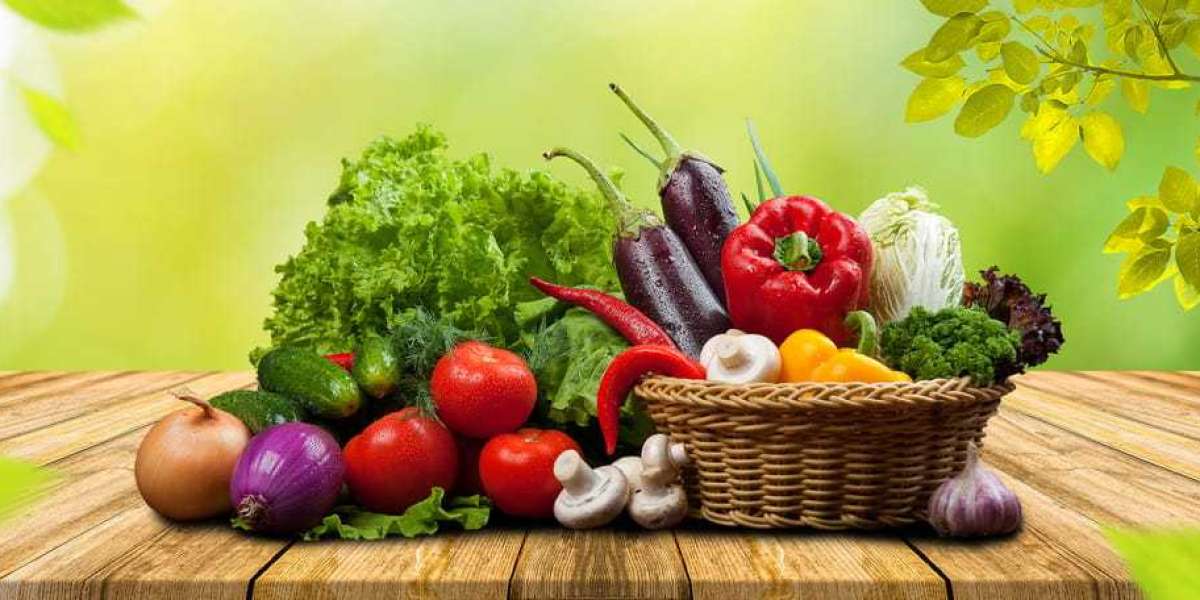Introduction:
In an era where sustainability and health-consciousness are at the forefront of consumer concerns, the demand for organic food continues to surge. Organic farming practices prioritize soil health, biodiversity, and natural methods of pest and weed control, resulting in produce that is not only free from synthetic chemicals but also richer in nutrients. In this exploration of how organic food is grown, we delve into the meticulous techniques and principles that underpin organic agriculture, highlighting the symbiotic relationship between farmers and the environment.
Soil Management: At the heart of organic farming lies a reverence for soil health as the foundation of agricultural sustainability. Organic farmers employ practices such as crop rotation, cover cropping, and composting to nurture and replenish the soil. Crop rotation involves alternating the types of crops grown in a particular field seasonally to prevent soil depletion and minimize pest and disease pressures. Cover crops, such as legumes and grasses, are planted during fallow periods to protect the soil from erosion, fix nitrogen, and add organic matter. Composting, the process of recycling organic waste into nutrient-rich fertilizer, enhances soil fertility and fosters a thriving ecosystem of beneficial microorganisms essential for plant growth.
Pest and Disease Control: Organic farmers employ a holistic approach to pest and disease control, prioritizing prevention and natural remedies over chemical interventions. Integrated pest management (IPM) strategies emphasize the use of biological controls, cultural practices, and mechanical methods to manage pest populations effectively. Companion planting, where mutually beneficial plant species are grown together, can deter pests and attract beneficial insects that prey on harmful ones. Additionally, organic farmers may utilize natural predators, such as ladybugs and parasitic wasps, to control pest populations without resorting to synthetic pesticides.
Weed Management: Weed control is a perennial challenge in organic farming, given the absence of synthetic herbicides. Organic farmers employ a combination of cultural, mechanical, and manual methods to manage weeds and maintain soil health. Mulching, the practice of covering the soil with organic materials such as straw or wood chips, suppresses weed growth, retains soil moisture, and adds organic matter as it decomposes. Mechanical cultivation, including hand-weeding, hoeing, and tractor implements, is also a common practice to remove weeds without harming the soil or surrounding vegetation.
Biodiversity Promotion: Organic farming promotes biodiversity by recognizing the interconnectedness of ecosystems and the importance of preserving native habitats. Hedgerows, buffer strips, and polyculture practices create diverse landscapes that support a wide range of plant and animal species. By fostering habitats for beneficial insects, birds, and other wildlife, organic farmers enhance natural pest control and pollination, reducing the need for external inputs. Moreover, preserving native vegetation and minimizing habitat destruction contribute to the resilience and sustainability of agricultural landscapes in the face of environmental challenges.
Conclusion:
The cultivation of organic food embodies a harmonious relationship between farmers and the natural world, guided by principles of sustainability, biodiversity, and ecological stewardship. By prioritizing soil health, implementing holistic pest and weed management strategies, and promoting biodiversity, organic farmers produce food that is not only free from synthetic chemicals but also nourishing for both people and the planet. As consumers increasingly prioritize health, environmental sustainability, and ethical food production, understanding how organic food is grown empowers individuals to make informed choices that support a more sustainable and resilient food system.
Visit BlogBudy https://blogbudy.com








